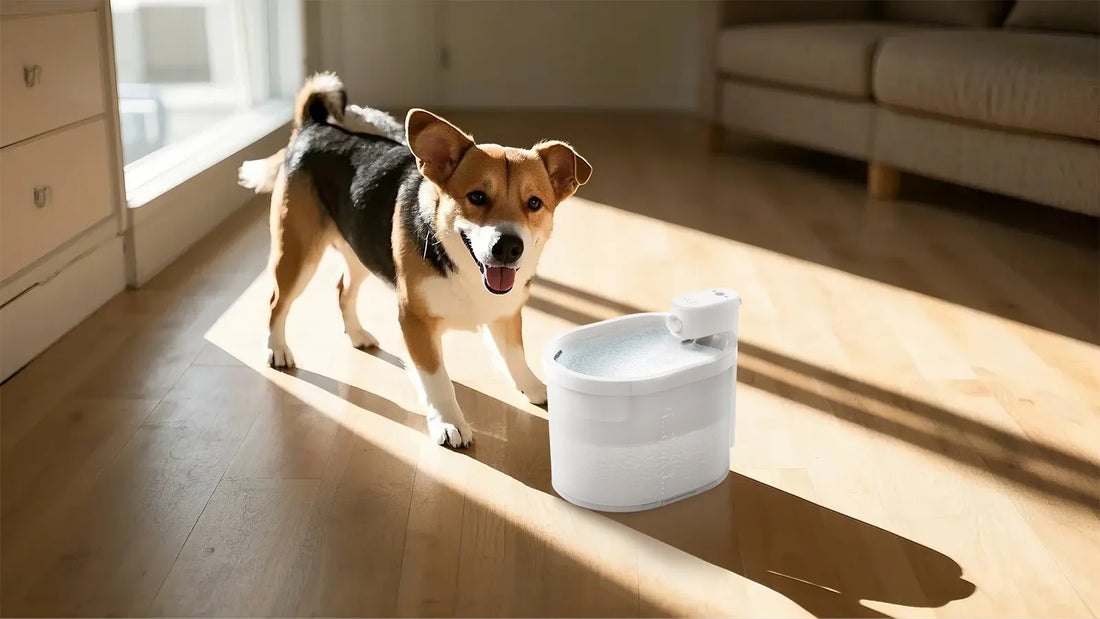It can be incredibly worrying when your dog stops drinking water or eating. As a pet owner, you naturally want to ensure your furry friend is healthy and happy. Understanding the potential causes and knowing how to respond can make all the difference in getting your dog back on track.
Common Reasons Why a Dog Stops Drinking Water or Eating
There are several reasons why your dog might refuse to drink water or eat. Some of the most common causes include:
- Illness or Pain: Dogs may stop eating or drinking if they are feeling unwell or experiencing pain. Conditions such as dental issues, gastrointestinal problems, or infections can lead to a loss of appetite.
- Stress or Anxiety: Changes in the environment, such as moving to a new home or the arrival of a new pet, can cause stress and anxiety in dogs, leading to a decreased appetite.
- Dietary Changes: Sudden changes in your dog's diet can make them hesitant to eat or drink. It's important to transition to new foods gradually.
- Medication Side Effects: Some medications can cause side effects that reduce your dog's appetite or thirst.
- Behavioral Issues: Some dogs may refuse to eat or drink due to behavioral issues, such as picky eating or attention-seeking behavior.
How to Encourage Your Dog to Drink Water and Eat
If your dog is not drinking water or eating, there are several steps you can take to encourage them:
- Offer Fresh Water: Ensure your dog has access to clean, fresh water at all times. Some dogs prefer running water, so consider using a pet water fountain.
- Try Different Foods: Experiment with different types of food to see if your dog has a preference. You can also try warming up the food to make it more appealing.
- Create a Calm Environment: Reduce stress and anxiety by creating a calm and comfortable environment for your dog. Provide a quiet space where they can eat and drink without distractions.
- Consult Your Veterinarian: If your dog continues to refuse food or water, it's important to consult your veterinarian. They can rule out any underlying medical conditions and provide appropriate treatment.
When to Seek Veterinary Care
While it's normal for dogs to occasionally skip a meal, prolonged refusal to eat or drink can be a sign of a serious health issue. You should seek veterinary care if:
- Your dog has not eaten or drunk anything for more than 24 hours.
- Your dog is showing signs of illness, such as vomiting, diarrhea, or lethargy.
- Your dog is experiencing pain or discomfort.
- Your dog has a pre-existing medical condition that could be affected by their lack of appetite or thirst.
Preventing Future Issues
To prevent future issues with your dog not drinking water or eating, consider the following tips:
- Maintain a Consistent Routine: Dogs thrive on routine, so try to feed them at the same times each day and provide fresh water regularly.
- Monitor Their Health: Keep an eye on your dog's overall health and behavior. Regular check-ups with your veterinarian can help catch any potential issues early.
- Provide a Balanced Diet: Ensure your dog is receiving a balanced diet that meets their nutritional needs. Avoid giving them too many treats or table scraps, as this can lead to picky eating.
- Reduce Stress: Minimize stress in your dog's environment by providing a stable and predictable routine. Consider using calming products or techniques if your dog is prone to anxiety.
Seeing your dog not drinking water or eating can be distressing, but with the right approach, you can help them regain their appetite and stay healthy. Always monitor your dog's behavior and consult your veterinarian if you have any concerns. Your furry friend's well-being is worth the effort!













